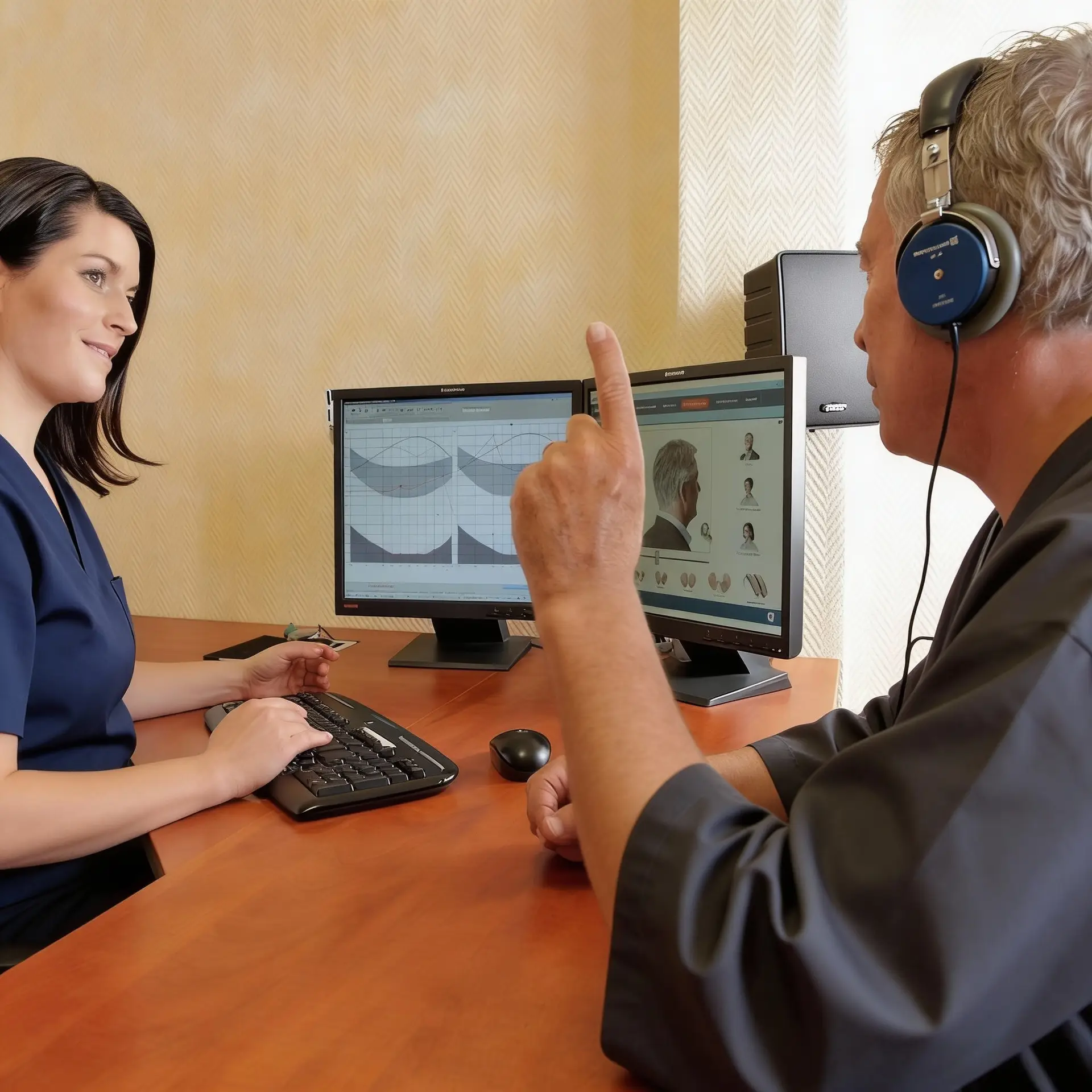A Clear Guide to Post-Concussion Vestibular Syndrome
Specialised Recovery for Post-Concussion Vestibular Syndrome
Dizziness, vertigo, or balance problems after concussion? These symptoms are common and usually resolve with targeted rehab, not a sign of something serious. At Harley AVM, we restore stability effectively. Seek urgent AVM care for worsening headaches, vision changes, weakness, or confusion, as these need immediate evaluation.
Comprehensive Care for Hearing, Vertigo & Balance
Comprehensive Care for Hearing, Vertigo & Balance
Balance and Sensory Disruption After Head Injury
An Overview of Post-Concussion Vestibular Syndrome
Post-concussion vestibular syndrome refers to persistent balance, dizziness, and visual–motion symptoms that develop after a head injury or concussion. Even when scans appear normal, the systems that integrate balance, vision, and spatial awareness may function poorly, leading to dizziness, unsteadiness, nausea, blurred vision, or difficulty concentrating during movement.
Symptoms often worsen with head motion, busy visual environments, or rapid position changes. The condition reflects altered processing within vestibular and central pathways rather than ongoing structural damage. Recovery varies between individuals, and symptoms may persist for weeks or months. Accurate identification is important, as targeted assessment helps distinguish vestibular involvement from other post-concussion effects and guides appropriate management strategies.
Pinpointing the Cause
Diagnosing Post-Concussion Vestibular Syndrome
When to Get Checked
You should get assessed if dizziness, imbalance, or visual–motion sensitivity persists beyond the initial recovery period after a concussion, interferes with work or daily activities, or worsens with movement, screens, or busy environments. Symptoms that fail to improve or fluctuate significantly warrant audiovestibular review.
You should seek urgent assessment if symptoms escalate suddenly or include worsening headache, repeated vomiting, new neurological signs, confusion, weakness, vision loss, or difficulty walking safely. Early evaluation helps exclude complications and guide appropriate care.

How We Assess Vestibular Schwannoma
At Harley Audiovestibular Clinic, our process starts with a consultant knowing your detailed history, exploring concussion details, dizziness onset, vertigo patterns, balance issues, and associated symptoms to identify post-concussion vestibular syndrome. We prioritise unhurried consultations with our consultants, building a personalised picture of your recovery challenges.
We advance with vestibular function tests, balance assessments, oculomotor exams, audiometry, and neurological screening to confirm the diagnosis accurately, ruling out alternatives. Our senior clinicians review these collaboratively for precise insights. This expert pathway distinguishes us, informing tailored rehabilitation that restores stability and function effectively. At Harley AVM, we ensure personalised follow-up for sustained recovery and optimal outcomes.

Major Insurance Providers Accepted
DIAGNOSTIC TESTS
Specialist Tests to Assess Hearing, Balance and Inner Ear Health
Harley Street Specialists in Hearing, Dizziness & Balance
Specialist Care for Post Concussion Vestibular Syndrome
Every Post Concussion Vestibular Syndrome case is different. Your consultant will create a tailored plan to address your specific symptoms and lifestyle – when it started, how it affects your day, and which tests and treatments are right for you.